Table of Contents
-
FREE
REGISTRATION
HERE!
-
New to supercomputing? Click
here.
-
KEYNOTE:
Amy
Apon,
National Science Foundation
-
PLENARY:
Alan
Chalker,
Ohio Supercomputer Center
-
PLENARY:
Erik
Deumens,
University of Florida
-
PLENARY:
Todd
Gamblin,
Lawrence Livermore National Laboratory
-
PLENARY:
Henry Neeman,
University of Oklahoma
-
PLENARY:
Dan Stanzione,
Texas Advanced Computing Center,
University of Texas at Austin
-
PLENARY PANEL:
Dana Brunson,
Internet2 (Moderator)
-
PLENARY PANEL:
Pratul Agarwal,
Oklahoma State University
-
PLENARY PANEL:
Brian Burkhart,
OneNet/Oklahoma State Regents for
Higher Education
-
PLENARY PANEL:
Franklin Fondjo Fotou,
Langston University
-
PLENARY PANEL:
Henry Neeman,
University of Oklahoma
-
PLENARY PANEL:
Stephen Wheat,
Oral Roberts University
PLENARY
SPEAKERS
Director
OU
Supercomputing Center for Education
& Research (OSCER)
Executive Director of Research Computing
Information
Technology
Associate Professor
College
of Engineering
Adjunct Associate Professor
School
of Computer Science
University
of Oklahoma
Topic:
"OSCER State of the Center Address"
Slides:
PowerPoint
PDF
Talk Abstract
The
OU
Supercomputing Center for
Education & Research
(OSCER)
celebrated its 23rd anniversary
on August 31 2024.
In this report,
we examine
what OSCER is,
what OSCER does,
what OSCER has accomplished
in its 23 years,
and where OSCER is going.
Biography
Dr.
Henry Neeman
is the
Director of the
OU
Supercomputing Center for Education &
Research,
Executive Director of Research Computing
for OU
Information
Technology
(IT),
Associate Professor in the
College
of Engineering
and
Adjunct Associate Professor in the
School
of Computer Science
at the
University of
Oklahoma.
He received his BS in computer science
and his BA in statistics
with a minor in mathematics
from the
State
University of New York at Buffalo
in 1987,
his MS in CS from the
University of
Illinois at Urbana-Champaign
in 1990
and his PhD in CS from UIUC in 1996.
Prior to coming to OU,
Dr. Neeman was a postdoctoral research
associate at the
National
Center for Supercomputing Applications
at UIUC,
and before that served as
a graduate research assistant
both at NCSA
and at the
Center for
Supercomputing Research &
Development.
In addition to his own teaching and research,
Dr. Neeman has collaborated with
dozens of research groups,
applying High Performance Computing techniques
in fields such as
numerical weather prediction,
bioinformatics and genomics,
data mining,
high energy physics,
astronomy,
nanotechnology,
petroleum reservoir management,
river basin modeling
and engineering optimization.
He serves as an ad hoc advisor
to student researchers
in many of these fields.
Dr. Neeman's research interests include
high performance computing,
scientific computing,
parallel and distributed computing
and
computer science education.
Alan Chalker
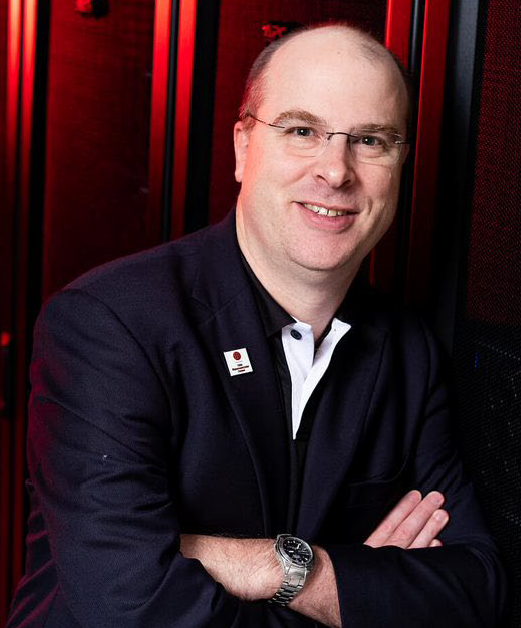
Director of Strategic Programs
Ohio
Supercomputer Center
Topic:
"Open OnDemand:
Connecting Computing Power with
Powerful Minds"
Slides:
PDF
Talk Abstract
Open
OnDemand
is an innovative, open-source, web-based portal
that removes the complexities of
research computing system environments from
the end-client,
and in so doing,
reduces "time to science" for researchers,
by facilitating their access to
research computing resources.
Through Open OnDemand,
research computing clients
can upload and download files,
create, edit, submit and monitor jobs,
create and share apps,
run graphical user interface-based (GUI)
applications,
and
connect to a terminal,
all via a web browser,
with no client software
to install and configure.
Open OnDemand greatly simplifies
access to
research computing resources,
freeing domain scientists from
having to worry about
the operating environment
and instead focus on their research.
It enables computer center staff
to support a wide range of clients,
by simplifying
the user interface and experience.
The overall impact is that
clients can use remote computing resources
faster and more efficiently.
This presentation will provide
an overview of Open OnDemand,
and detail some of the success stories
that have been generated from
the global community of
over 1600 research computing centers
that utilize it.
Biography
Alan Chalker, Ph.D.,
is Director of Strategic Programs at
the
Ohio
Supercomputer Center
(OSC).
In this role,
he is responsible for
many of OSC's
innovative efforts and initiatives,
including in the areas of
business development and
relationship management.
Chalker also coordinates
many of the center's grant proposals
and manages a variety of research projects,
as well as the
Open
OnDemand
platform,
which is utilized by
research computing centers worldwide.
Additional oversight responsibilities
for Chalker include
OSC's regular participation in
numerous conferences and events
(such as the
Ohio
State Fair
and
SC
Conference Series)
and OSC's
Summer
Institute
programs for middle- and high- school students
(of which he is an alumnus).
Chalker also oversees
OSC's public outreach activities,
including educational tours of
OSC's data center
and
the presentation/activity book
"What's
So Super About Supercomputing?"
Previously,
Chalker was responsible for
AweSim
(OSC's industrial engagement program)
and a team of researchers
who worked on projects and training for
the
Department
of Defense's
(DoD)
High
Performance Computing
Modernization Program.
Prior to OSC,
Chalker spent five years as
the lead controls engineer with
a public company,
Embrex
Inc.
In 1998,
Chalker earned a bachelor's degree in
Electrical
and Computer Engineering
from
The
Ohio State University.
He received a doctoral degree in
Biomedical
Engineering
at
the
University
of North Carolina at Chapel Hill
in 2005.
Erik Deumens

Senior Director
UFIT
Research Computing
University
of Florida
Topic:
"HITRUST Compliance for
Legally Regulated Computing and Data
on HPC Systems"
Slides:
PPTX
Talk Abstract
The
HITRUST
cybersecurity and compliance
framework and assessment process
has been developed since 2007
to create efficiency around
validating requirements imposed by
HIPAA.
To enable research on
protected health information
with AI models on its
HiPerGator
supercomputer,
the
University
of Florida
decided in 2021
to get the supercomputer
certfied by HITRUST
to make sure that
data was adequately protected.
To get the full benefit of
AI in medical research,
it is necessary to expose
all characteristics of the data
to the training process.
Some of the de-identification processes
create distortions
that are hard to detect and correct.
In this talk,
I will describe the process UF went through
to get certified on March 2023.
Biography
Erik Deumens
has a background as
a researcher in
computational nuclear and chemical physics.
In that career,
he has worked on
almost every supercomputer type ever built.
He became a programmer and computer scientist
as a side effect of
computational science research.
He is the designer of
the super instruction architecture,
an approach to
computational chemistry programming
that scales to multiple 10,000 cores.
Since 2011,
he has been the director of
the
Research
Computing
unit in
IT
at the
University
of Florida.
In 2015,
he was asked to take ownership and build out
an environment for research on restricted data
that meets requirements posed by
HIPAA
and
ITAR,
i.e. complies with
NIST 800-53
moderate and
NIST 800-171,
and now
CMMC
v2.
Todd
Gamblin

Distinguished Member of Technical Staff
Advanced
Technology Office
Livermore
Computing
Lawrence
Livermore National Laboratory
Topic:
"El Capitan: The First NNSA Exascale System"
Slides:
coming soon
Talk Abstract
Livermore
Computing
(LC),
Lawrence
Livermore National Laboratory's
(LLNL's)
supercomputing center,
and
HPE
are deploying
the
first
US exascale system
focused on national security.
This talk provides
an overview of the preparations for
LC's
first exascale system,
as well as details of
its system architecture.
Biography
Todd Gamblin is
a Distinguished Member of Technical Staff
in the
Livermore Computing
division at
Lawrence Livermore National Laboratory.
He created
Spack,
a widely used
open-source build and package management tool
for HPC.
He leads
cloud collaborations and software strategy
in LLNL's
Advanced Technology Office.
In the past,
Todd has led the
Packaging
Technologies Project
under the
U.S.
Exascale
Computing Project
and an LLNL
Strategic
Initiative on
software integration.
His research interests include
dependency management,
software,
parallel computing,
and
performance analysis.
Todd has been at LLNL since 2008.
He received the
Early
Career Research Award
from the
U.S.
Department
of Energy
in 2014, an
R&D 100 award
in 2019,
and
the
LLNL Director's Science & Technology Award
in 2020.
He received Ph.D. and M.S. degrees in
Computer
Science
from the
University
of North Carolina at Chapel Hill
in 2009 and 2005,
and his B.A. in
Computer
Science
from
Williams
College/
in 2002.
Dan
Stanzione
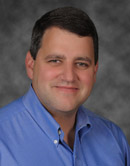
Executive Director
Texas
Advanced Computing Center
The University
of Texas at Austin
Topic:
"The NSF Leadership Computing Facility --
What's Coming Up Soon,
and Challenges for the Future"
Slides:
available after the Symposium
Talk Abstract
The
National Science Foundation
funded a new
Leadership
Computing Facility,
led by the
Texas
Advanced Computing Center,
in July of this year.
Now that construction is under way,
this talk will cover
what users can expect (and when!),
and discuss upcoming challenges
in building/deploying HPC systems
in the age of AI.
Biography
Dan Stanzione is the Executive Director of the
Texas
Advanced Computing Center
(TACC)
at
The
University of Texas at Austin
and the Principal Investigator for
Wrangler.
He is also the PI for TACC's 10 PetaFlop
Stampede
supercomputer,
and has previously been involved in
the deployment and operation of the
Ranger
and
Lonestar
supercomputers at TACC.
He served as the Co-Director of
The
iPlant Collaborative,
an ambitious endeavor to build
cyberinfrastructure to address
the grand challenges of plant science.
Prior to joining TACC,
Dr. Stanzione was the founding director of the
Ira A. Fulton
High Performance Computing Institute
(HPCI)
at
Arizona
State University (ASU).
Before ASU,
he served as an AAAS Science Policy Fellow
in the
National
Science Foundation
and as a research professor at
Clemson
University,
his alma mater.
Amy
Apon,
PhD
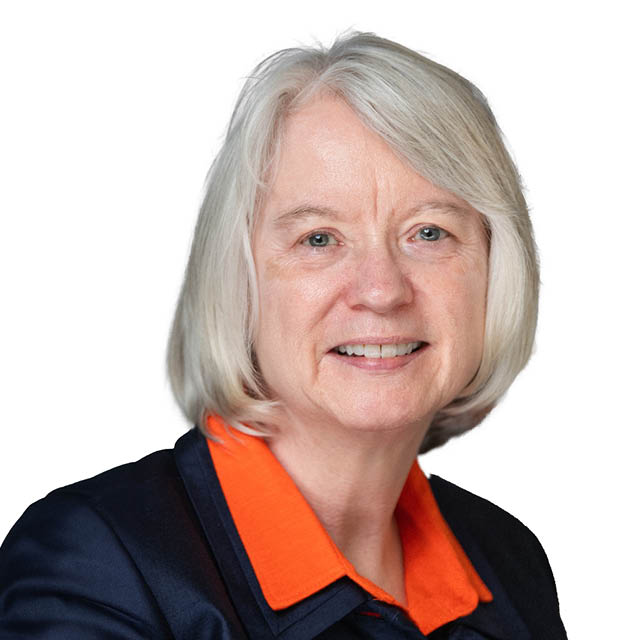
Program Director
Professor
Office
of Advanced Cyberinfrastructure
Directorate
for Computer & Information
Science & Engineering
National
Science Foundation
Talk Topic:
"Opportunities in
the NSF Office of Advanced Cyberinfrastructure
and Update on
the National Artificial Intelligence
Research Resource"
Slides:
PDF
Talk Abstract
This talk will give an overview of
resources and funding opportunities in
the NSF Office of Advanced Cyberinfrastructure
(OAC),
with a focus on
currently available resources,
as well as funding opportunities.
The talk will also include an update on the
National
Artificial Intelligence
Research Resource
(NAIRR)
Pilot.
The talk will allow time for questions
from the audience.
Biography
Amy Apon
has been a Program Director in the
Office
of Advanced Cyberinfrastructure
since January 2023.
She is the lead Program Director for the
Campus
Cyberinfrastructure
program,
a program within the
Office of Advanced Cyberinfrastructure.
Apon joined NSF through the
Intergovernmental Personnel Act,
or rotator,
in January 2023 from
Clemson
University
where she holds the rank of Professor.
Apon joined Clemson in 2011 as the Chair of the
Computer Science Division
and became the Director of the
School
of Computing
in 2019,
a position that she held through the pandemic.
Prior to joining Clemson,
Apon was a faculty member at the
University
of Arkansas.
While at Arkansas
she founded the
Arkansas
High Performance Computing Center
in support of cyberinfrastructure needs for
institutions across Arkansas.
Apon holds a PhD in
Computer
Science
from
Vanderbilt
University.
She does research in
parallel and distributed computing systems
and in a variety of
interdisciplinary areas with collaborators.
Dana Brunson
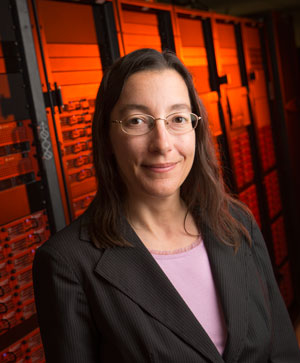
Executive Director for
Research Engagement
Internet2
Panel Topic:
"How the OneOklahoma Cyberinfrastructure
Initiative Enables CI Funding"
Panel Abstract
Since
the OneOklahoma Cyberinfrastructure Initiative
was established in September 2008,
member institutions have been awarded
$18.6M in external funding for
research computing
-- over a million dollars a year on average.
In this panel,
we'll look at how OneOCII uses
peer mentoring and community building
to create a statewide capability
for ongoing federal support of Oklahoma
computing/data-intensive research.
Biography
Dr. Dana Brunson
is Executive Director for Research Engagement
at
Internet2.
She is responsible for
developing, directing, and executing
Internet2's
strategy and active engagement with
the national and global communities
that
supports
the effective use and development of
research cyberinfrastructure.
Dana is Principal Investigator of the
Research
Computing and Data Nexus,
a
National
Science Foundation
Cyberinfrastructure
Center of Excellence
Pilot,
and serves in leadership roles
in the
Campus
Research Computing Consortium
(CaRCC),
including co-chairing
the
RCD
Capabilities Model
working group
and
the
Logistics operations
group.
In August 2024,
she completed her role as co-manager of the
XSEDE
Campus Engagement Program
which included the
Campus
Champions.
Prior to
joining Internet2 in January 2019,
she was Assistant Vice President for
Research Cyberinfrastructure,
Director of the
Oklahoma
State University
High
Performance Computing Center,
and co-lead of the
OneOklahoma
Cyberinfrastructure Initiative.
She earned her Ph.D. in
Mathematics
at the
University
of Texas at Austin
and master's and bachelor's degrees in
mathematics
from OSU.
Brian Burkhart
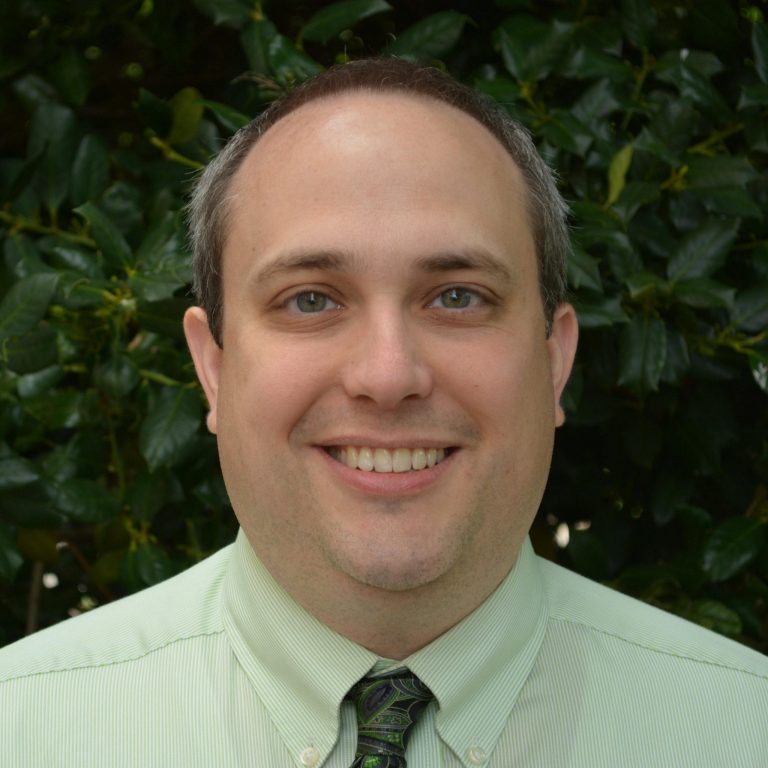
Chief Technology Officer
OneNet
Oklahoma
State Regents for Higher Education
Panel Topic:
"How the OneOklahoma Cyberinfrastructure
Initiative Enables CI Funding"
Panel Abstract
Since
the OneOklahoma Cyberinfrastructure Initiative
was established in September 2008,
member institutions have been awarded
$18.6M in external funding for
research computing
-- over a million dollars a year on average.
In this panel,
we'll look at how OneOCII uses
peer mentoring and community building
to create a statewide capability
for ongoing federal support of Oklahoma
computing/data-intensive research.
Biography
Brian Burkhart
joined the
OneNet
team in November 1999 as a systems engineer.
He currently serves as
Chief Technology Officer
and coordinates
the overall technical direction of OneNet.
He also serves as principal investigator for
OneNet's
National
Science Foundation
grant
awards.
Franklin Fondjo Fotou

Associate Professor
Department Chair
Department
Department of Technology
Director
LU
Computing Center for
Research & Education
Langston
University
Panel Topic:
"How the OneOklahoma Cyberinfrastructure
Initiative Enables CI Funding"
Panel Abstract
Since
the OneOklahoma Cyberinfrastructure Initiative
was established in September 2008,
member institutions have been awarded
$18.6M in external funding for
research computing
-- over a million dollars a year on average.
In this panel,
we'll look at how OneOCII uses
peer mentoring and community building
to create a statewide capability
for ongoing federal support of Oklahoma
computing/data-intensive research.
Biography
Franklin Fondjo Fotou
received his B.S. degree in Physics,
M.Sc. degrees in Physics
(with a minor in Electronics),
M.Sc. Degree in Physics
(with a minor in Heat Transfer)
from the
University of Yaoundé I,
Yaoundé Cameroon,
in 1996, 1998, and 2000
respectively.
He received the Doctor's degree in
Computer Science and Communication Engineering
at the
Graduate School of
Information Science and Electrical Engineering,
Kyushu University,
Japan in March 2006.
Dr. Fondjo
was recipient of
the Japanese government
scholarship for excellence,
the Munbukagakusho,
from April 2003 - March 2006,
and has received several the
Young Scientist Research Fund
of the 21st Century
COE Program of Japan
in 2004, 2005 and 2006.
Dr. Fondjo Fotou
is Co-PI and key personnel on
several NSF funded grants.
His current research includes
Computational Electromagnetics and SAR,
Internet of Thing (IoT),
and big Data analysis and Data Science.
He is currently the Chair of the
Department of Technology,
Langston University,
in Langston OK,
the Director of the
Langston Computing Center for
Research and Education
(LU-CCRE),
the Director of the
Langston Center for
Interdisciplinary Research and Education
(LU-CIRE),
and the Co-Director of the
Langston Math Science and Technology (MST)
Summer Program at Langston University.
Dr. Fondjo Fotou
is
a
Campus Champion for
Langston University
and an active member of the
OneOklahoma Cyberinfrastructure Initiative
(OneOCII).
He is also member of both the
IEEE
(Institute of Electrical and
Electronics Engineers)
in US and the
IEICE
(The Institute of Electronics,
Information and Communication Engineers)
in Japan.
Stephen
Wheat
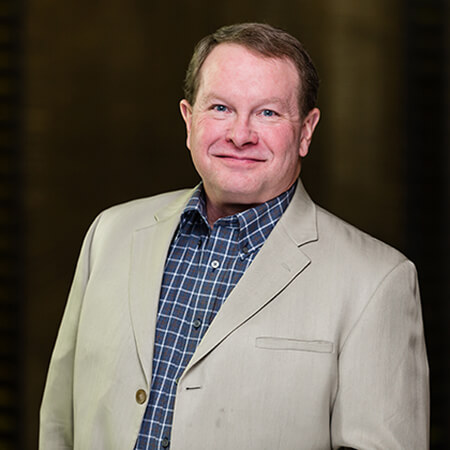
Professor
Computing
and Mathematics
Oral
Roberts University
Panel Topic:
"How the OneOklahoma Cyberinfrastructure
Initiative Enables CI Funding"
Panel Abstract
Since
the OneOklahoma Cyberinfrastructure Initiative
was established in September 2008,
member institutions have been awarded
$18.6M in external funding for
research computing
-- over a million dollars a year on average.
In this panel,
we'll look at how OneOCII uses
peer mentoring and community building
to create a statewide capability
for ongoing federal support of Oklahoma
computing/data-intensive research.
Biography
Stephen Wheat
joined the
Computing
and Mathematics
faculty at
Oral
Roberts University
(ORU)
in January 2018.
Prior to his arrival at ORU,
he spent 38 years in the
High-Performance Computing (HPC) industry.
His work contributed to
the search for oil,
the enhancement of telephony,
the hunting for submarines,
the means to comply with
a nuclear forces treaty,
the means to maintain
the nuclear stockpile
without the need for full-scale testing,
to advancements in all industries.
His roles spanned
from researcher to General Manager.
Dr. Wheat is the recipient of a
Gordon
Bell Prize
(1994)
as well as the
Intel Achievement Award
(1997),
both associated with
his advancing technology in HPC.
He has twice been recognized by
a major HPC publication as a
"Person to Watch."
He was recognized as one of
NASA
Ames
Research Center's
25 most influential people
in their 25-year history
for his contributions to
NASA's return to flight
after the Columbia space shuttle disaster,
even though he did not work for NASA.
Dr. Wheat brings
his broad experience in Computer Science
to ORU,
where he enriches the course material with
decades of real-life experience,
bringing life and relevance to
even the most basic concepts,
"my technical skills matched with
my faith-lived-out
frequently gave me opportunity
to share the story of God's grace and love
through Jesus Christ
with people that confided in me
because they saw more there.
It is my daily goal
to enable students to excel in their careers
with the means to be
missionaries within the technical community."
Having lived as a youth in Tulsa
and attending his first two years of university
at ORU,
he and his wife of 42 years
have relocated back to Tulsa.
He and she are the parents of four and
the grandparents of 12.
Dr. Wheat is
a Commercial Pilot and
a Certified Flight Instructor
for Multi-Engine Airplanes
in Instrument conditions.
He also enjoys
photography, cycling, and running.

